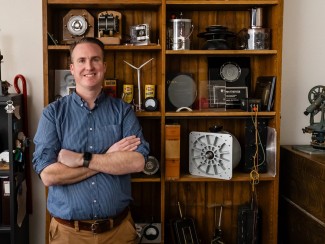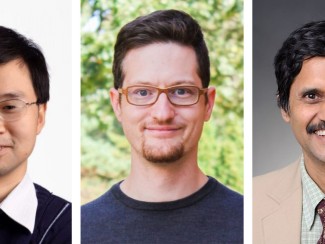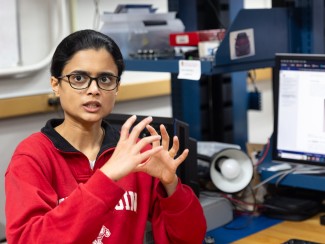
Trisha Andrew, a University of Wisconsin-Madison assistant professor of chemistry, is one of 18 early career scientists from around the country named a Packard Fellow for Science and Engineering.
The award includes a grant of $875,000 over five years to pursue research and is given in recognition of the potential significance of scholarship and innovation from the nation's most promising young scientists and engineers.
"The Packard Fellowships are an investment in an elite group of scientists and engineers who have demonstrated vision for the future of their fields and for the betterment of our society," said Lynn Orr, Keleen and Carlton Beal professor at Stanford University and chair of the Packard Fellowships Advisory Panel. "Through the Fellowships program, we are able to provide these talented individuals with the tools and resources they need to take risks, explore new frontiers and follow uncharted paths."
The research promises to improve the performance of existing electronics and significantly enhance data and energy storage, as well as telecommunications technology in general.
Andrew and her group study the use of organic magnets to control the charge and spin of electrons. A goal is to produce new electronic devices with greatly reduced power consumption. The research promises to improve the performance of existing electronics and significantly enhance data and energy storage, as well as telecommunications technology in general.
Robert McMahon, chair of UW-Madison's Department of Chemistry, cited Andrew's work for its interdisciplinary rigor and great potential for application: "Professor Andrew's research group spans doctoral programs in chemistry, materials science, and electrical engineering. This unconventional program enables her to generate unique insights; she blends talents in device fabrication with chemical synthesis to tackle challenging problems for which no obvious solutions currently exist. She has already developed new electronic materials and new low-cost processing techniques to fabricate nontraditional devices, such as paper solar cells."
The Fellowships program was inspired by David Packard's commitment to strengthen university-based science and engineering programs in the United States, recognizing that the success of the Hewlett-Packard Company, which he co-founded, was derived in large measure from research and development in university laboratories.





